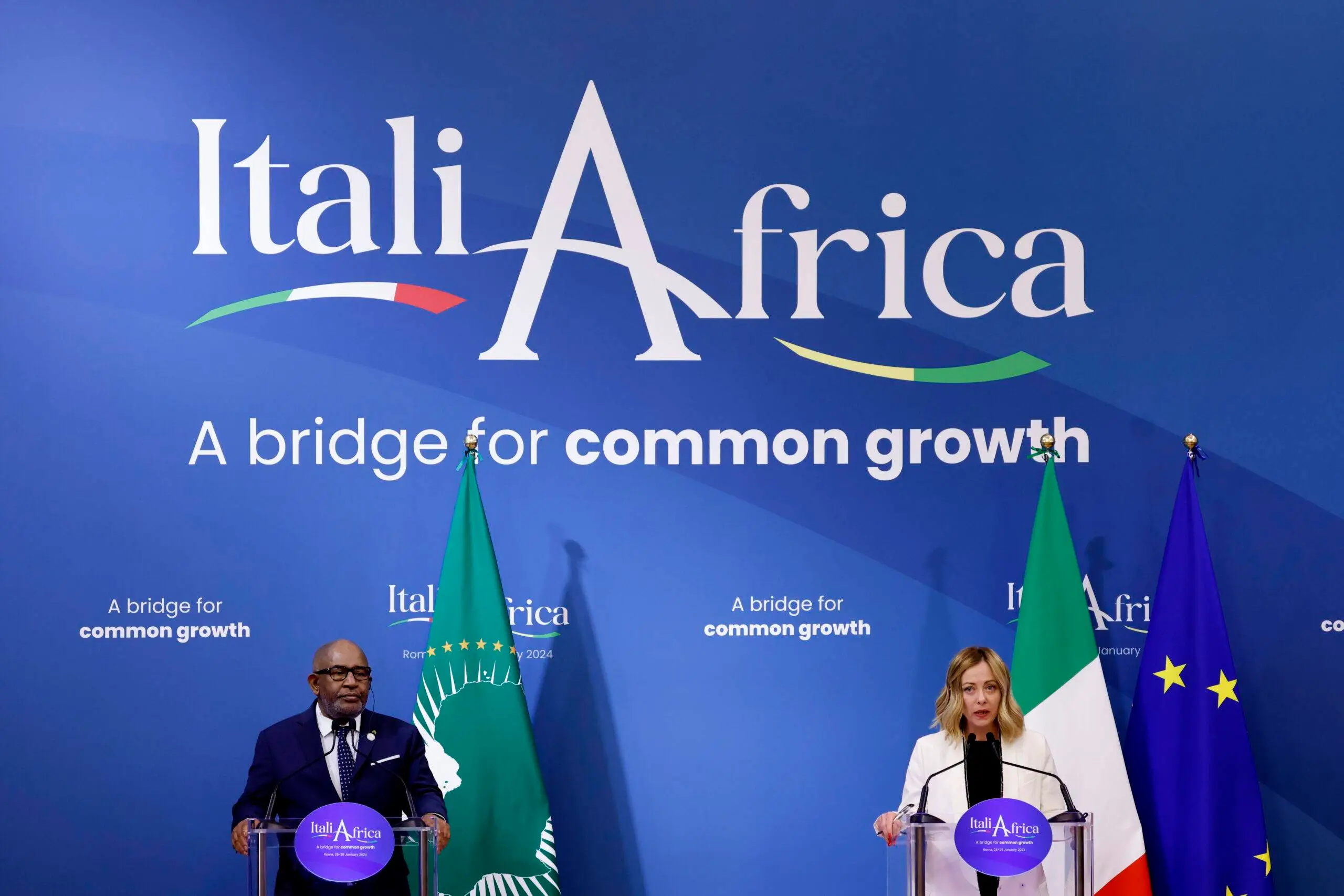
Italy has unveiled a sweeping plan to invest billions across Africa, marking a strategic shift in how Europe addresses migration from the continent.
Prime Minister Giorgia Meloni presented the initiative—dubbed the “Mattei Plan for Africa”—at a high-level summit in Brussels on Friday, aiming to replace border controls and return agreements with targeted economic development.
The plan proposes €5.5 billion in investments across 14 African nations, including strategic partners in both North and sub-Saharan Africa such as Ivory Coast, Ethiopia, and Kenya.
Projects are expected to focus on key sectors like health, education, and infrastructure.
Speaking alongside European Commission President Ursula von der Leyen, Meloni framed the investment as a way to tackle “the root causes” of migration while expanding Italy’s diplomatic and economic influence on the continent.
“This is about partnership, not charity,” she emphasized, adding that the goal is to build mutual prosperity.
However, critics have raised concerns about the plan’s actual impact.
A government report released last November showed that under €2 billion had been effectively deployed—suggesting a significant gap between political ambition and real-world execution.
The Mattei Plan also exists within a broader context of competing global interests. The European Union’s Global Gateway initiative, which earmarks €150 billion for Africa, aims to counter China’s Belt and Road strategy.
While Rome is coordinating with Brussels, it seeks to retain control by advancing its own bilateral relationships and project priorities.
A European Commission spokesperson told AFP that “the Italian initiative complements EU efforts,” but acknowledged its scale is modest compared to the bloc’s broader strategy.
Italy’s pivot reflects a growing awareness in Europe that traditional aid-and-control policies have failed to stem migration or build sustainable partnerships.
Meloni’s government is now betting on targeted investments as a new model—one that could redefine Euro-African relations if successfully implemented.
Still, observers warn that trust among African partners remains fragile.
“Promises alone don’t build economies,” one diplomat noted. “Execution is everything.”
Whether the Mattei Plan becomes a transformative policy or another unfulfilled pledge will depend on how swiftly Italy translates strategy into action—and whether African nations view it as a genuine opportunity or yet another European overture with strings attached.



